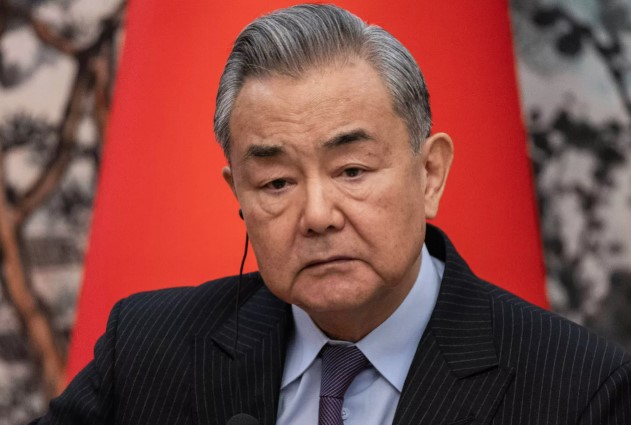During a high-level meeting with European Union (EU) officials, China’s Foreign Minister Wang Yi reportedly told EU foreign policy chief Kaja Kallas that China cannot afford for Russia to lose the war in Ukraine. This information comes from a report by the South China Morning Post (SCMP), citing sources familiar with the closed-door conversation.
China’s Bold Message to EU Revealed
According to the report, the meeting between Wang and Kallas lasted nearly four hours. During this time, Wang is said to have given a clear and strong message about China’s strategic position. He reportedly expressed concern that if Russia loses in Ukraine, the United States may turn its full attention to Beijing. This concern reflects China’s fear that a Russian defeat would bring unwanted U.S. pressure on China, particularly over its stance on Taiwan.
Although China has called for peace in public, this private statement caught EU officials off guard. Some sources described Wang’s words as a “lesson in realpolitik”, showing how deeply China is calculating the global effects of the Ukraine conflict.
China’s Hidden Role: Rebuilding Industry in Russian-Occupied Ukraine
China’s Strategic Support to Russia Under Scrutiny
China has maintained a close relationship with Russia since the full-scale war in Ukraine began in 2022. While it has publicly denied supplying weapons or military aid to Moscow, many Western countries believe that China is helping Russia indirectly. Reports say China sells dual-use goods—items usable for both civilian and military purposes—which actively fuel Russia’s defense industry, despite heavy sanctions imposed by Western countries on the Kremlin.
President Volodymyr Zelensky of Ukraine has openly accused China of siding with Russia. On May 29, he said that China had stopped selling drones to Ukraine and its Western allies, while continuing to supply them to Russia. This added to the concerns that China’s actions, even if not open military support, are still strengthening Moscow’s war efforts.
China Could Exploit Toxic Rift Between USA and Ukraine
In response, Wang Yi once again denied all accusations during his meeting with Kallas. He insisted that China is not sending weapons or funds to Russia for the war. Still, the timing of his firm statement and the growing military cooperation between Beijing and Moscow continue to raise concerns among Western diplomats.
U.S. Shifts Focus, Ukraine Faces Setbacks
The United States has been Ukraine’s biggest military backer. However, recent actions suggest that Washington is re-evaluating its priorities. On July 1, the U.S. Defense Department paused shipments of critical weapons systems to Ukraine. These included Patriot air defense missiles and precision-guided munitions, which are essential for Ukraine’s defense against Russian attacks.
Adding to the shift, a June report from Bloomberg noted that former President Donald Trump, who has promised to broker a peace deal between Russia and Ukraine, is no longer pressing China on its support for Russia. Instead, Trump is focusing more on direct U.S.-China issues. While he has long viewed China as America’s top global rival, the war in Ukraine now appears to be a lower priority for his foreign policy team.
‘No Limits’ or No Loyalty? China’s State Hackers Penetrate Deep Into Russian Defense
This softening of the U.S. stance on China’s role in the Ukraine war is seen by some as a strategic trade-off. By not pushing China too hard, the U.S. may be trying to manage tensions in other areas, such as trade, Taiwan, and military presence in the Asia-Pacific region.
Meanwhile, China and Russia continue to strengthen their diplomatic ties. Russian President Vladimir Putin is scheduled to visit China in September for the Shanghai Cooperation Organization (SCO) summit. There, he will meet Chinese President Xi Jinping, further deepening their alliance during a time when both countries are facing criticism from the West.

